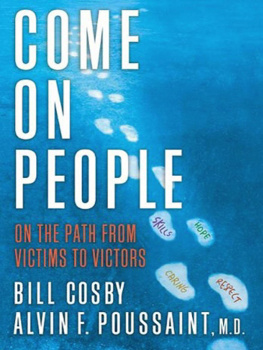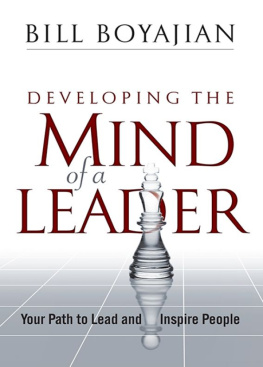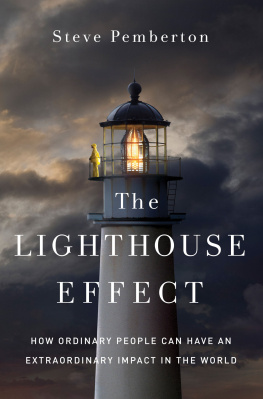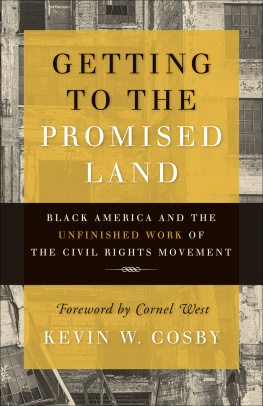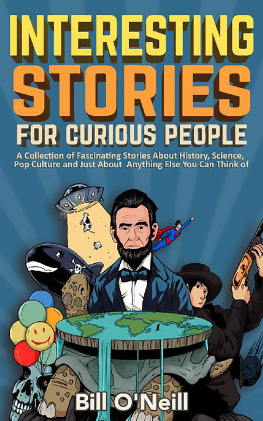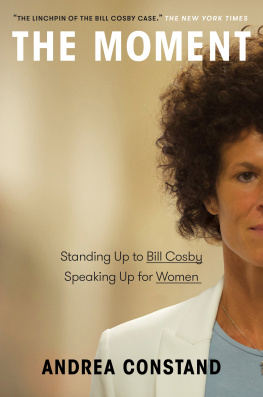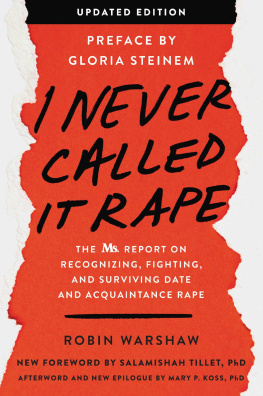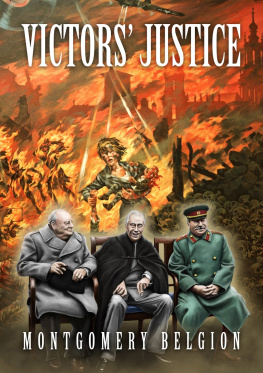COME ON, PEOPLE
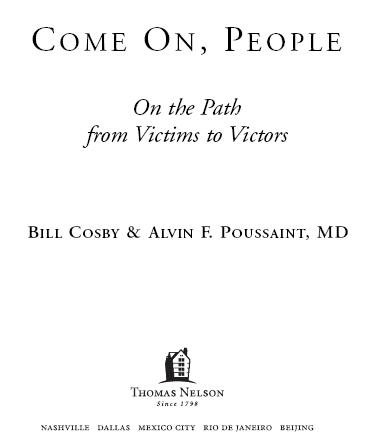
2007 by William H. Cosby Jr. and Alvin F. Poussaint, MD
All rights reserved. No portion of this book may be reproduced, stored in a retrieval system, or transmitted in any form or by any meanselectronic, mechanical, photocopy, recording, scanning, or otherexcept for brief quotations in critical reviews or articles, without the prior written permission of the publisher.
Published in Nashville, Tennessee, by Thomas Nelson. Thomas Nelson is a trademark of Thomas Nelson, Inc.
Thomas Nelson, Inc., titles may be purchased in bulk for educational, business, fund-raising, or sales promotional use. For information, please e-mail SpecialMarkets@thomasnelson.com.
I Am a Black Woman, published by Wm. Morrow & Co., 1970, by permission of the author.
Mother to Son, copyright 1994 by The Estate of Langston Hughes, from The Collected Poems of Langston Hughes by Langston Hughes, edited by Arnold Rampersad with David Roessel, Associate Editor. Used by permission of Alfred A. Knopf, a division of Random House, Inc.
Managing Editor: Alice Sullivan
Library of Congress Cataloging-in-Publication data on file with the Library of Congress.
ISBN 978-1-59555-092-7
Printed in the United States of America
07 08 09 10 11 QW 6 5 4 3 2 1
To those who have worked for justice
so that we can all walk the path
to become victors.
CONTENTS
Sing a song full of the faith that the dark past has taught us,
Sing a song full of the hope that the present has brought us;
Facing the rising sun of our new day begun,
Let us march on till victory is won.
From Lift Every Voice and Sing
JAMES WELDON JOHNSON, 1899
A guy called in to a radio show: For forty years, Bill Cosby has never really shown that he is black or said that he was black. So now that he is wealthy and nobody can hurt him, now hes going to stand up and be black.
Lets try to break that down. After forty years, I decided that I would hop on a streetcar, head downtown, and join the black club. Here is how I imagine that encounter went.
May I have my card, please?
And where were you forty years ago?
I apparently wasnt black thenor black enough in any case.
So okay, but you want your card now?
Yes.
Okay, I suppose we will give you a card now.
Thanks.
And what is it you want to say?
I want to tell the truth, and the truth often hurts.
No, you cant tell the truth now.
Why?
Because we are told that youve only been black for a year or so.
Yes, but the numbers that I have are very true, and even if some people think I am not black enough for them, the numbers speak for themselves.
What kind of numbers?
Like 70 percent of our babies are born to single women, or even when we do get married, we have a divorce rate of 60 percent.
Why should I believe you?
Dont. Listen to Malcolm X. I dont know if he was black long enough to qualify either, but forty-five years ago he was saying many of the same things, telling people to get off of welfare because welfare made black people lazy.
Was Malcolm black enough? He did have red hair after all.
Dr. King didnt. Du Bois didnt. All the best writers turned the mirror around to say, While you are thinking about the enemy, dont forget about the enemy within. That is all I have been saying.
But what will the white people think?
Forget about the white people.
Forget about them?
Theyre covered. How many speakers speak out every day about racism, whether its systemic or whatever? Even if there is truth to what they say, they sedate themselves with it.
Thats heresy. What would Farrakhan say?
Even Farrakhan has said quit being concerned about white people; build your own strength first. Thats from a man who is the minister of a group called black. But apparently Im not black.
Only for a year or so, and even then you didnt have your card.
Well, in that last year or so, just look at the numbers of shootings, the stabbings, the overdoses, the school dropouts, the meaningless acts of violence toward each other in our community. Can I talk about those or should I just shake them off like a bad cold?
A year is not a lot of perspective.
Maybe so, but many of us come from a time when you really didnt see much of these kinds of things. So we have a basis for comparison. But you werent black back then.
You may not think so. But the white people did. And even if I wasnt black in your eyes, I was in theirs, and the people of my generation suffered the kind of indignities that people of yours can barely even imagine. So please allow us our perspective.
Well, all right.
And I have seen enough to know that, no matter what people tell you, this mayhem is not a part of our culture the way our music is. This violence is not a part of our culture the way our literature is. And this vulgarity has never been a part of our culture before. Im asking you to be a voice against that kind of thinking, a voice that will no longer be shut out or shouted down.
Youre asking a lot.
I know that.
We know that. For the last three and a half years, I have been holding community call-outs in cities around the country. My longtime collaborator, Dr. Alvin F. Poussaint, has been following these discussions along with me. The responses of the people have helped us understand some of the issues Ive been addressing. Throughout this book, you will hear the voices of real people in different cities who participated in the call-out town meetings.
The voices at the call-outsand in this bookwill tell you how they moved, how they recovered, how they picked themselves up, how they went forward. We cheer them and we amen them. Yet how many of you are facing the same thing? How many of you are looking at perfectly healthy friends and family who have done nothing since they dropped out of high school other than a little hustling and a little welfare? How much is that person worth to the community or to the state or to himself or herself?
We ask these questions of everyone who cares about the future of young black people in Americaparents especially, grandparents, foster parents, godparents, teachers, social service workers, and good citizens of every color. You are the you with whom we have the honor of conversing.
This book will cover selected topics that mirror the concerns of the different peoplerich and poor, young and old, educated and uneducated, married and singlewho attended the call-outs. The trials of black people are at the core of Come On, People But the problems they face are similar to those of all poor and alienated groups, regardless of race. We can all learn from each other and be allies in changing the behaviors and institutions that limit our young peoples chances for success.
In this book, we look at the issues with an eye on what we need to do to help our youth and reenergize our neighborhoods to move in positive directions. African Americans must never give up the struggle to eliminate the racism and classism in our society that continue to present obstacles to success for the poor. People in the village work best to change their communities when they are educated, healthy, and mentally strong. We can change things we have control over if we accept personal responsibility and embrace self-help.
Listening to the people is key to mobilizing for change, to creating better communities for our children. If we are to gauge where we are today and where we have to go tomorrow, we have to look at the past as well as the present. Once we find our bearings, we can move forward, as we have always done, on the path from victims to victors.
Next page
